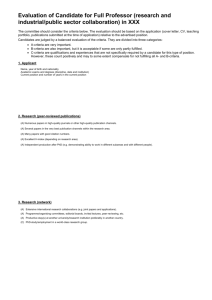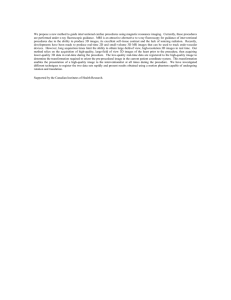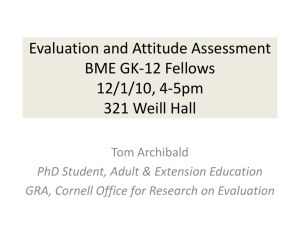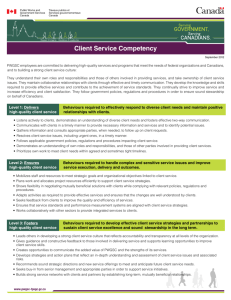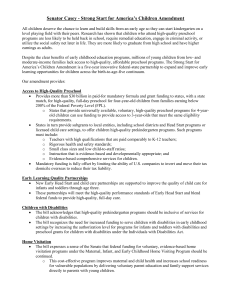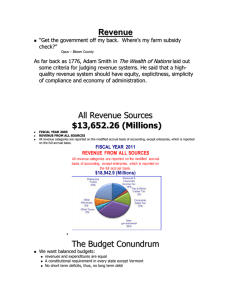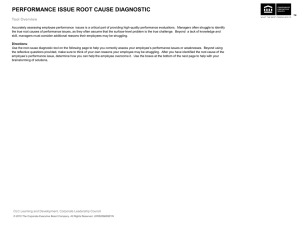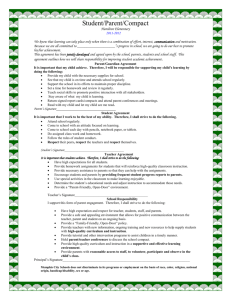The department has established itself as one of the very best Danish
advertisement
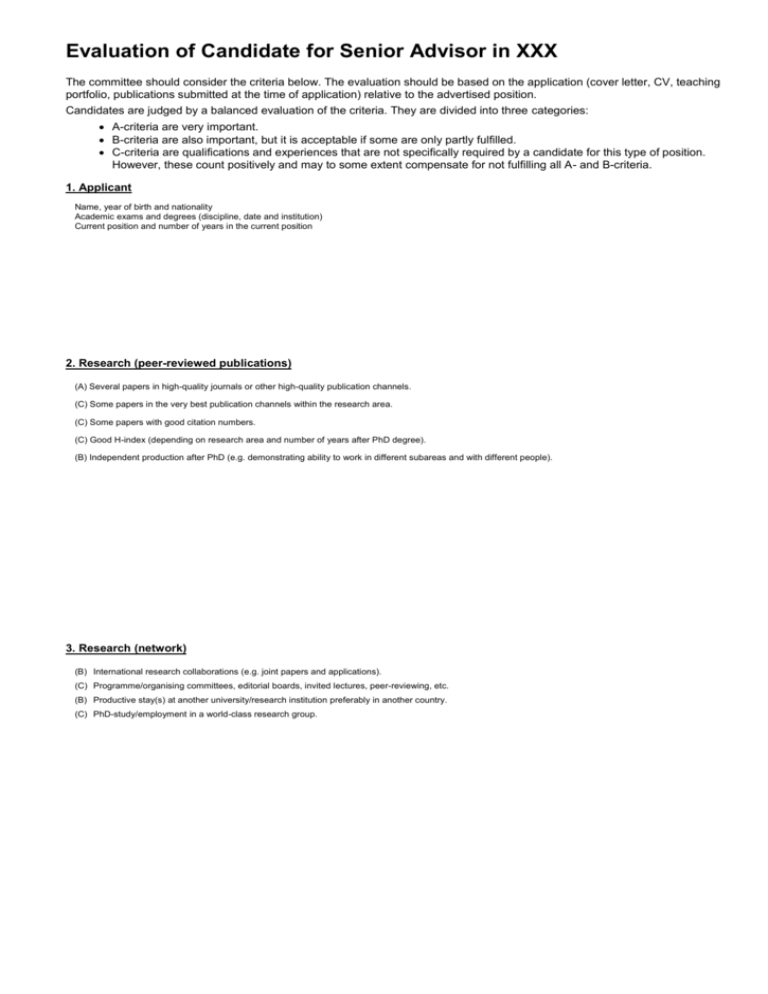
Evaluation of Candidate for Senior Advisor in XXX The committee should consider the criteria below. The evaluation should be based on the application (cover letter, CV, teaching portfolio, publications submitted at the time of application) relative to the advertised position. Candidates are judged by a balanced evaluation of the criteria. They are divided into three categories: A-criteria are very important. B-criteria are also important, but it is acceptable if some are only partly fulfilled. C-criteria are qualifications and experiences that are not specifically required by a candidate for this type of position. However, these count positively and may to some extent compensate for not fulfilling all A- and B-criteria. 1. Applicant Name, year of birth and nationality Academic exams and degrees (discipline, date and institution) Current position and number of years in the current position 2. Research (peer-reviewed publications) (A) Several papers in high-quality journals or other high-quality publication channels. (C) Some papers in the very best publication channels within the research area. (C) Some papers with good citation numbers. (C) Good H-index (depending on research area and number of years after PhD degree). (B) Independent production after PhD (e.g. demonstrating ability to work in different subareas and with different people). 3. Research (network) (B) International research collaborations (e.g. joint papers and applications). (C) Programme/organising committees, editorial boards, invited lectures, peer-reviewing, etc. (B) Productive stay(s) at another university/research institution preferably in another country. (C) PhD-study/employment in a world-class research group. 4. Research (academic leadership and funding) (C) Ability to perform ground-breaking research. (C) Ability to provide scientific leadership, inspiration and guidance of research colleagues. (B) Ability to manage large research projects or substantial parts of these. (A) Ability to attract external funding. (C) Experience with interdisciplinary research. (C) Elite funding such as ERC. 5. Teaching and outreach (C) Supervision or co-supervision of PhD students and Master’s thesis students/bachelor projects. (C) Demonstrated ability to deliver high-quality undergraduate/graduate teaching. (C) Development of teaching plans/material. (C) Implementation/development of innovative teaching methods. (A) Public outreach, e.g. popular science lectures/articles. 6. Industrial/public sector collaboration (A) Collaboration with/employment in industry/public organisations or planning and management of consultancy/advisory projects or monitoring programs. (B) Providing the scientific basis for industrial collaboration or legislative/political decision-making. (A) High-quality advisory papers/technical reports, collection/analysis/modeling of large data sets, and quality assurance experience. (B) Development/application of models/analytical methods etc. for use in industry/public sector and membership of expert groups/boards in ministries/EU etc. (C) Patents/spin-off companies 7. Additional skills (A) Good communication skills (oral and written). (A) Ability to collaborate and build relationships. (C) Contribution to local administration (e.g. participation in departmental committees). 8. Other criteria relevant to the advertised position 9. Summary and conclusion of evaluation
